National Native American Heritage Month: Local Indigenous Literature and Authors
November is National Native American Heritage Month. The US Department of the Interior’s: Indian Affairs describe this month as a time to “celebrate the traditions, languages and stories of Native American and Alaska Native communities and ensure their rich histories and contributions continue to thrive with each passing generation”. In honor and celebration of Native American Heritage month, ACLU of Kansas highlights some of the literature and authors that preserve Native Kansas culture and address Native Kansans’ futures. With special thanks to The Raven Bookstore, we have gathered a list of Indigenous Kansas authors and literature we would like to platform as recommended reading for all Kansans.
“Haskell Institute: 19th Century Stories of Sacrifice and Survival” by Dr. Theresa Milk
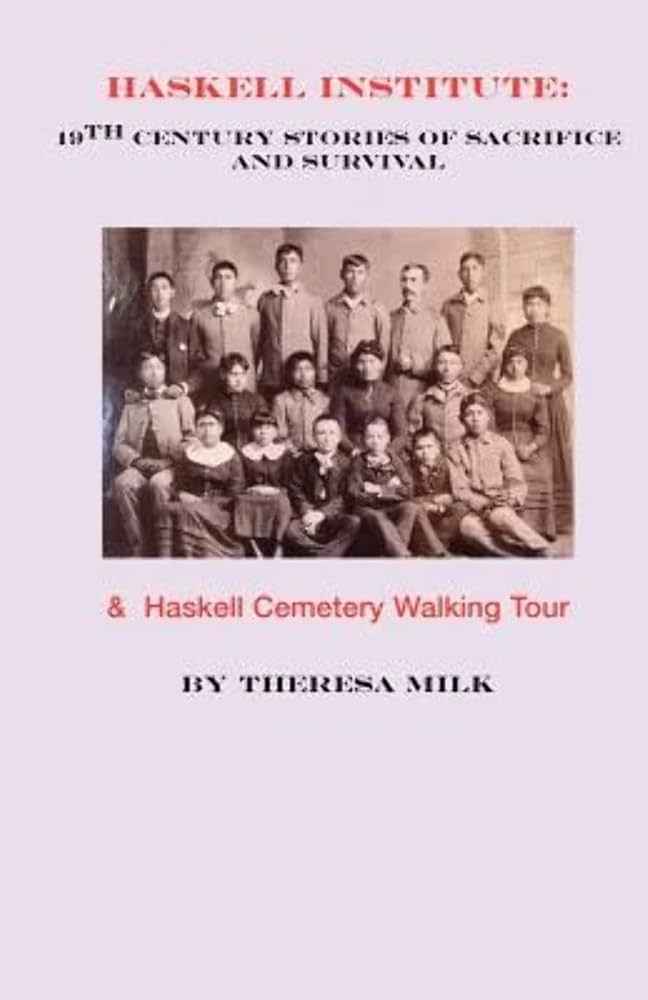
Description: Dr. Theresa Milk's HASKELL INSTITUTE: 19th CENTURY STORIES OF SACRIFICE AND SURVIVAL presents American Indian/Alaskan Native student stories from early days of Haskell, a federal boarding school founded in 1884. Milk takes a balanced look at the ordeals and successes of Native students as they struggled within a military, assimilationist educational envir0nment. Dr. Milk's new research-based on letters, newspaper articles, photographs, and government documents-emphasizes individual stories. This book draws on other researchers to give the overall background of Native boarding schools, but additionally adds texture of day-to-day life as experienced by individuals. Milk recovers lost histories. She uncovers the close ties between Haskell and the University of Kansas-Lawrence community. Early supervisors of Haskell included KU chancellor James Marvin and Lawrence resident Charles Robinson, Kansas state governor and abolitionist leader.
About the Author: Dr. Milk received her Associate of Arts and Bachelor of Arts degrees from Haskell Indian Nations University. In 2000, she was selected as an inaugural Gates Scholar, which allowed her to attend the University of Kansas School of Education for her Master’s degree and Ph.D. Dr. Milk taught English and American Indian Studies at Haskell until her recent retirement. (Bio from flclincoln.org)
“Indigenous Food Sovereignty In the United States” edited by Devon A. Mihesuah and Elizabeth Hoover
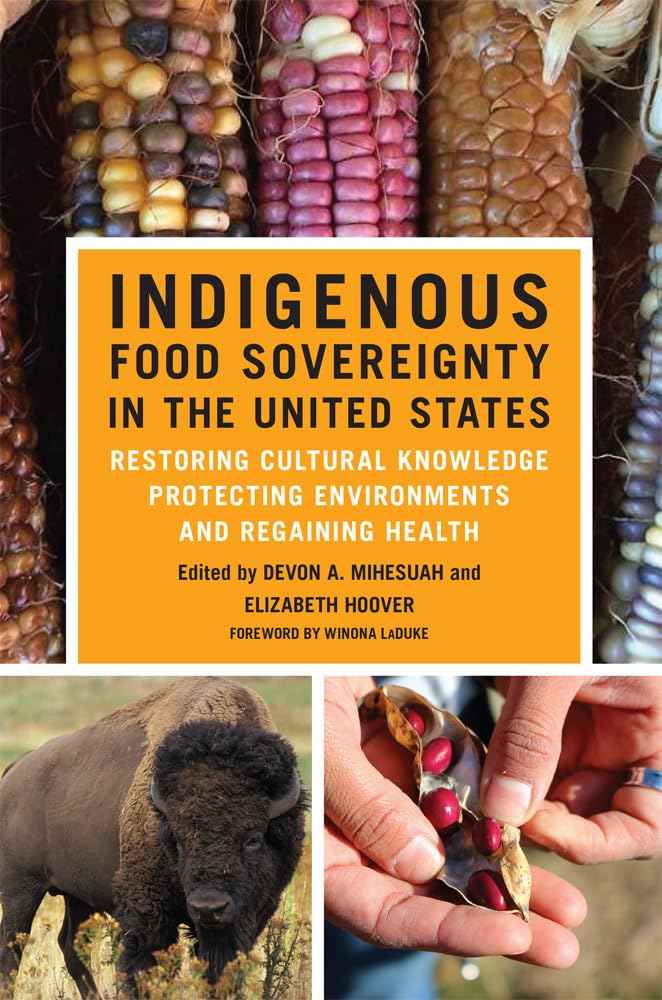
Description: Centuries of colonization and other factors have disrupted indigenous communities' ability to control their own food systems. This volume explores the meaning and importance of food sovereignty for Native peoples in the United States, and asks whether and how it might be achieved and sustained.
About the Editor: Devon Abbott Mihesuah is a Choctaw historian and writer. She is a former editor of American Indian Quarterly and an enrolled citizen of the Choctaw Nation. She is the Cora Lee Beers Price Professor in the Humanities Program at the University of Kansas. (Bio from wikipedia.org)
About the Editor: Elizabeth Hoover, Associate Professor in the Department of Environmental Science, Policy, and Management at UC Berkeley, is the author of articles about food sovereignty, environmental health, and environmental reproductive justice, as well as the book The River Is in Us: Fighting Toxics in a Mohawk Community. (Bio from Google Books)
“On Indigenuity: Learning the Lessons of Mother Earth” by Dan Wildcat
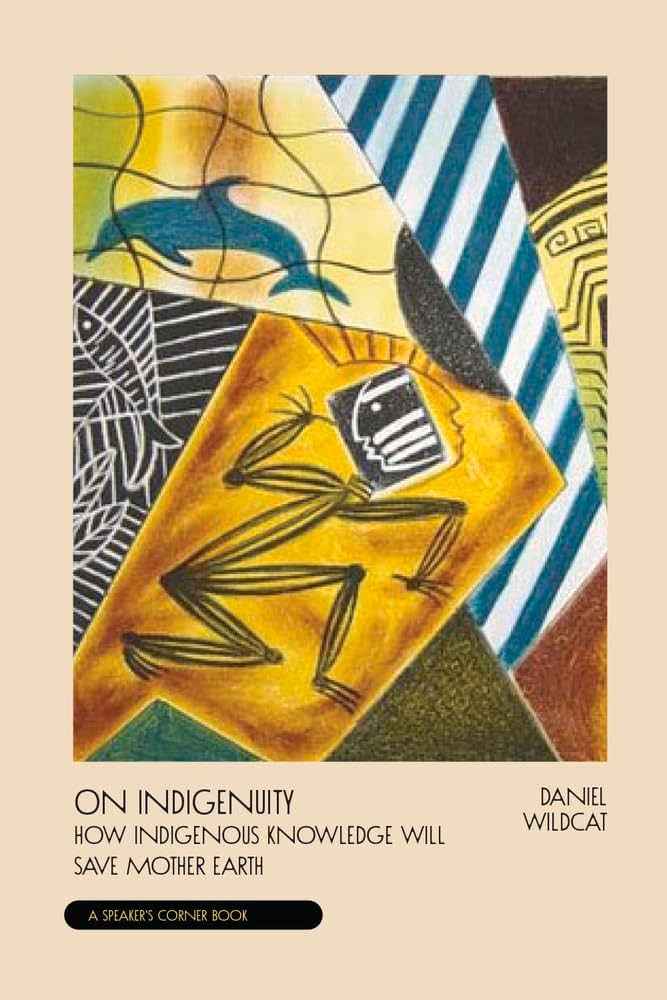
Description: Indigenuity, or Indigenous ingenuity, stems from an ancient idea and practice that Native peoples have engaged in for millennia. It was born of a careful mindfulness and attentiveness to our planet and all of its creatures, and a recognition that human experience is intertwined with all that surrounds us. As a society, we rarely pay attention to our land, air, and water, exacting a high price for all life on this planet. On Indigenuity is a call for us to learn a key lesson: it’s time to apply ancient Indigenous wisdom to solve modern problems.
“Red Alert!: Saving the Planet with Indigenous Knowledge” by Dan Wildcat
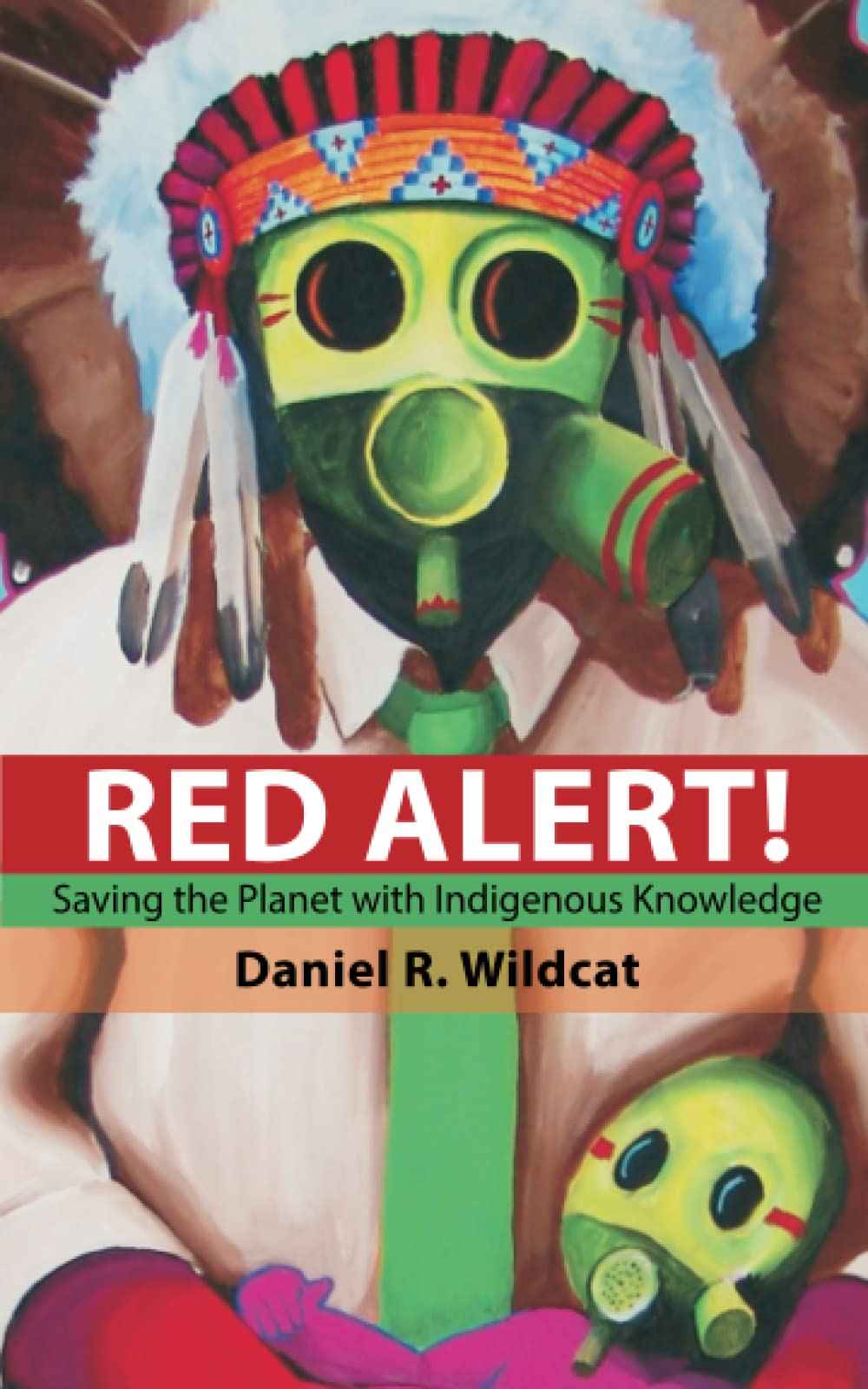
Description: What the world needs today is a good dose of indigenous realism, says Native American scholar Daniel Wildcat in this thoughtful, forward-looking treatise. Red Alert! seeks to debunk the modern myths that humankind is the center of creation.
About the Author: Daniel R. Wildcat is a Yuchi member of the Muscogee Nation of Oklahoma. His service as teacher and administrator at Haskell spans 37 years. In 2013 he was the Gordon Russell visiting professor of Native American Studies at Dartmouth College. Dr. Wildcat received an interdisciplinary Ph.D. from the University of Missouri at Kansas City. In 1994 he partnered with the Hazardous Substance Research Center at Kansas State University to create the Haskell Environmental Research Studies (HERS) Center.
“Custer Died for Your Sins: An Indian Manifesto (Civilization of the American Indian)” by Vine Deloria Jr.
(Not unique to Kansas but still a great read)
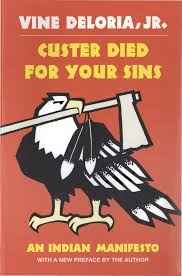
Description: In his new preface to this paperback edition, the author observes, The Indian world has changed so substantially since the first publication of this book that some things contained in it seem new again. Indeed, it seems that each generation of whites and Indians will have to read and reread Vine Deloria's Manifesto for some time to come, before we absorb his special, ironic Indian point of view and what he tells us, with a great deal of humor, about U.S. race relations, federal bureaucracies, Christian churches, and social scientists. This book continues to be required reading for all Americans, whatever their special interest.
About the Author: Vine Victor Deloria Jr. was an author, theologian, historian, and activist for Native American rights. He was widely known for his book Custer Died for Your Sins: An Indian Manifesto, which helped attract national attention to Native American issues in the same year as the Alcatraz-Red Power Movement. (Bio from Wikipedia.com)
Children’s Books:
“I Am Kiowa” by Dustin Stumblingbear
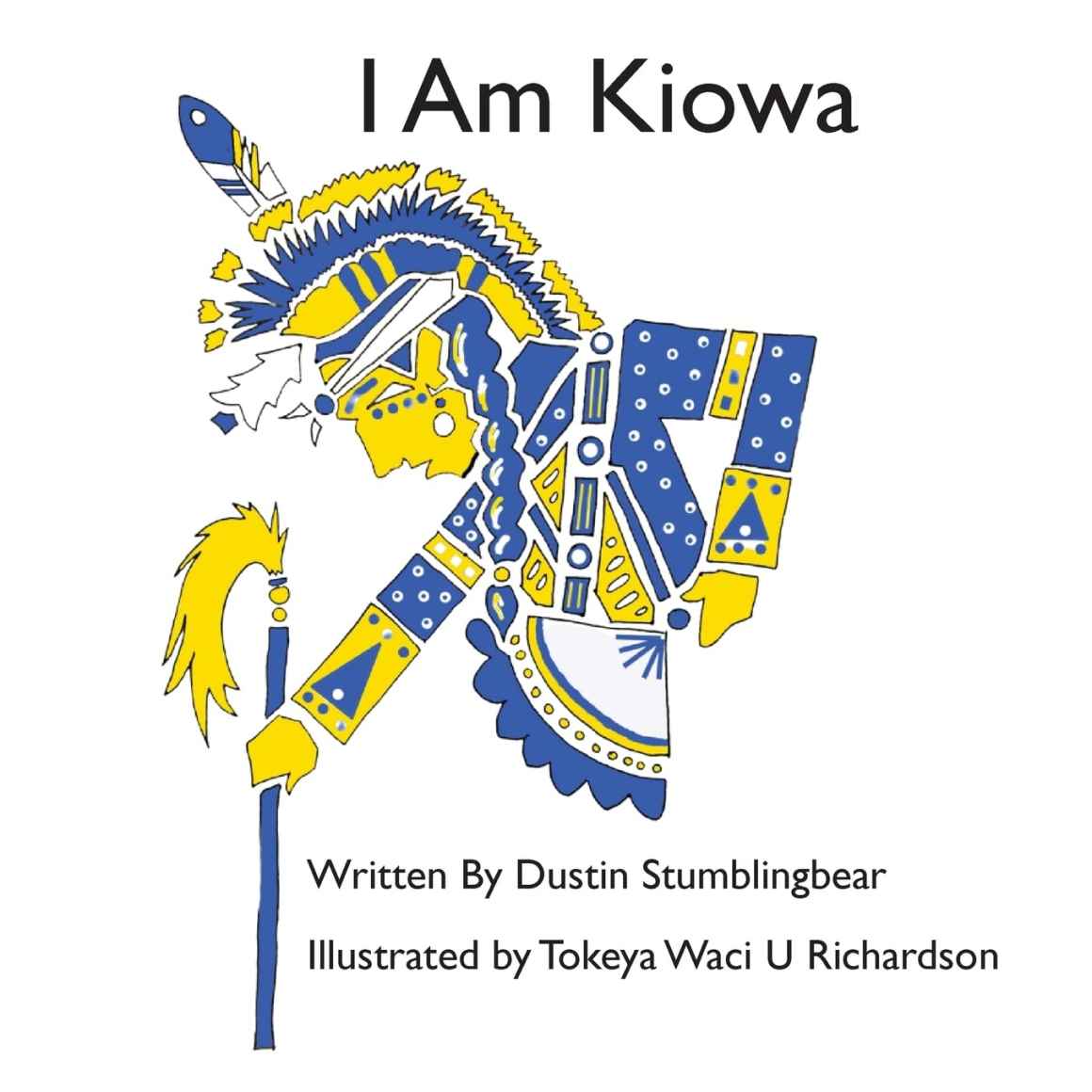
Description: “I am Kiowa” is the true story of a rambunctious 4th grader named Dustin Stumblingbear, his mother and brother going to a 5th grade class at Sunset Hill Elementary School and presenting elements of their Kiowa heritage.
About the Author: Dustin Stumblingbear, Kiowa, attended Haskell in the Summer of 1999. Originally from Tuscan, Arizona, he left the school to help take care of his son who lived in North Dakota (ND) at the time and felt it was too hard to balance the two and wanted to change his focus on his son who has ADHD and ODD (Oppositional Defiance Disorder). Stumbingbear returned to school, choosing to attend the University of Kansas in Fall of 2009 studying to become a Social Studies teacher. (Bio from The Indian Leader)
“Wings of an Eagle: The Gold Medal Dreams of Billy Mills” by Billy Mills, Donna Janell Bowman, S.D. Nelson (Illustrator)
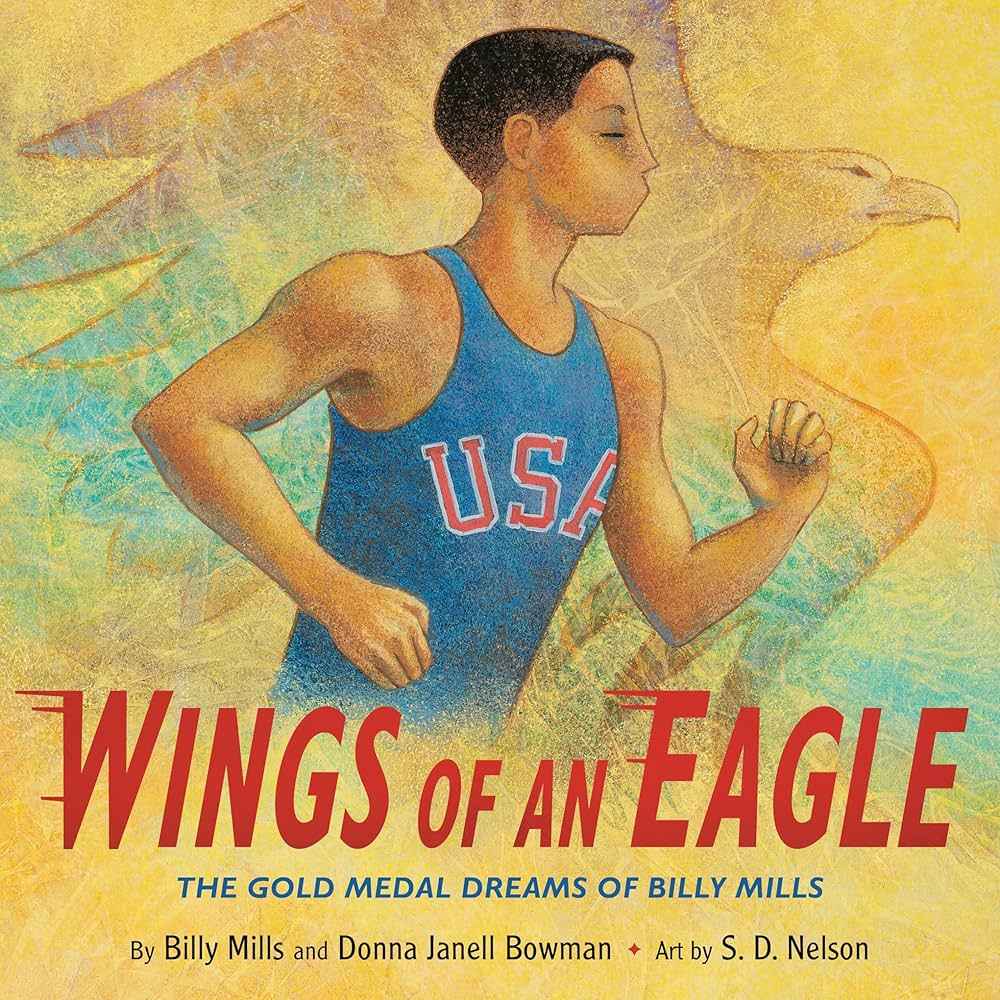
Description: Billy Mills was once an orphan on the Oglala Lakota Pine Ridge Reservation. But before his father was called to the ancestors, he told Billy how to conquer his suffering: You have broken wings, son. You have to dig deeper, below the anger, the hurt, the self-pity. The pursuit of a dream will heal you.
Despite poverty, racism, and severe health challenges, Billy raced toward his goal of becoming an Olympic athlete, inspired by his indigenous ancestors who stood strong when the odds were against them. Though at times he felt like his wings were clipped—a lone bird falling from the sky—he adapted and overcame, finally earning his place at the 1964 Olympics.
This autobiographical tale of Billy Mills’s awe-inspiring flight to a record-breaking gold medal, breathtakingly illustrated by award-winning Lakota artist SD Nelson, is a soaring testament to Billy’s legacy and the Lakota prayer: we are all related.
About the Author: Billy Mills is an Olympic gold medalist, author, and cofounder of Running Strong for American Indian Youth, a nonprofit organization that supports the critical needs of Native communities. A member of the Oglala Lakota (Sioux) Tribe, he grew up on the Pine Ridge Reservation and now travels around the world inspiring audiences to embrace unity through diversity while learning from historical injustices. He lives near Sacramento, California.
About the Author: Donna Janell Bowman is an award-winning author of books for young readers, including Step Right Up: How Doc and Jim Key Taught the World About Kindness and Abraham Lincoln’s Dueling Words. Donna holds an MFA in writing from Vermont College of Fine Arts. When not writing, she enjoys speaking at schools, coaching other writers, and learning from inspiring people. She lives near Austin, Texas.
About the Illustrator: S. D. Nelson, a member of the Standing Rock Sioux Tribe in the Dakotas, is the author and illustrator of inspiring children’s books, such as Black Elk’s Vision and Grandma’s Tipi. Honors include an American Indian Library Association award and a Spur Award from Western Writers of America. He is a cofounder of Read at Home, encouraging early literacy among Indigenous children. He lives in Flagstaff, Arizona.
Special thanks again to The Raven Bookstore for helping us curate this list of amazing authors and Indigenous literature.